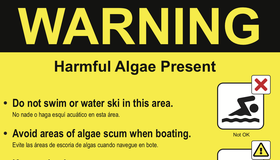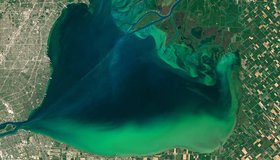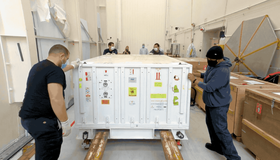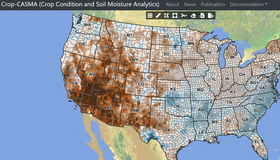
Green Lakes From Space
Harmful algal blooms are often hard to predict. NASA's Earth-observing satellites are uniquely poised to help spot them, and track the many ways that different parts of the Earth's system are connected.

When The Water Isn't Fine
The Cyanobacteria Assessment Network (CyAN) - a joint EPA, NASA, NOAA and USGS project - uses satellites to monitor harmful algal blooms in over 2,000 of the largest U.S. lakes. Since its launch, CyAN has saved millions of dollars in monitoring and health costs.

Climate Change Devastates Housing Security
In 2020, there were 22 billion-dollar U.S. climate disasters - floods, storms, droughts, heatwaves. One third of U.S. homes are at high risk from natural disaster, with many homeowners bearing the brunt of costly repairs.

Urgent Action Needed to Secure Global Food Supply
A comprehensive new review calls for urgent climate action to secure nutrition around the world. Climate change will have a major impact on global food production and human health without collaboration betwen consumers, food industries, policy makers and government.

WWAO 2020 Annual Report
In the face of a global pandemic, 2020 underscored the need for data to drive decision making. Improving the way we manage water is as critical as ever. WWAO’s Annual Report, now available, summarizes how we endeavored to move the needle in 2020.

New Partnership to Support Sustainable Agriculture
NASA’s Harvest program and soil analytics company CropX have announced a new partnership. The alliance will provide farmers and industry experts with insights that help improve farming sustainability by conserving resources and improving crop yields.

NISAR Spacecraft Takes Leap Forward
NISAR, an SUV-sized Earth satellite that will feature the largest reflector antenna ever launched by NASA, is taking shape in the clean room at NASA's Jet Propulsion Laboratory. Its mission is to track disasters as well as the effects of climate change.

NASA Joins National Climate Task Force
As a leading agency observing and understanding environmental changes on Earth, NASA has joined the Biden administration's National Climate Task Force.

NASA Data Power New Soil Moisture Portal
WWAO's new soil moisture data portal - Crop-CASMA - is live. Crop-CASMA, which provides high-resolution, field-scale soil wetness from NASA satellites in an easy-to-use format, is a collaboration between NASA, the U.S. Department of Agriculture and George Mason University.

WWAO Request For Information
WWAO is launching new water projects in the U.S. Columbia River Basin. As part of this effort, we’re looking for information on activities using NASA data or technology that could address key water issues in the region.